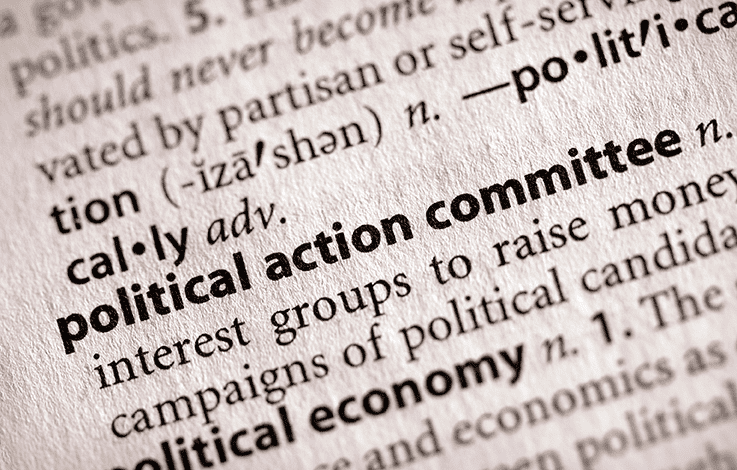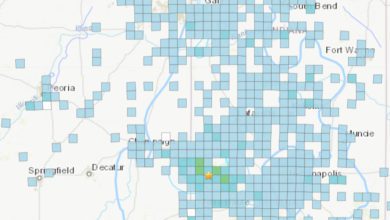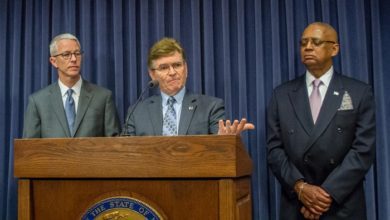Who is behind political flyers and television ads? For some answers, you can look at political action committees

There’s nothing quite like opening a mailbox to find 6”x9” political flyer; turning on the television to see a political ad; driving down the street to see a political billboard. Some will toss the flyer in the trash, change the channel and just ignore the billboard.
No one knows if these tactics actually influence voters. For some, the quantity of political outreach may turn them off to what’s being asked. For others, the colors and pictures may draw them in. Whether or not it makes a voter apathetic or active, there are rules around how these advertisements must be marked.
According to the FEC (Federal Election Committee), “Any public communication made by a political committee—including communications that do not expressly advocate the election or defeat of a clearly identified federal candidate or solicit a contribution—must display a disclaimer.”
PACs have many different functions. Usually, they are administered by corporations, labor unions, membership organizations or trade associations, but the general definition includes a group that spends money on elections, but is not run by a party or individual candidate.
The Illinois Campaign Disclosure Act requires applies to any candidates, individuals, groups of persons or any organizations, political or otherwise: “Have accepted contributions or made expenditures or independent expenditures in excess of $5,000 within a 12-month period in support of or in opposition to a candidate or candidates for public office, or any question of public policy to be submitted to voters; Have received or made expenditures in excess of $5,000 within a 12-month period for electioneering communication; Have made independent expenditures in excess of $5,000 within a 12-month period.”
PAC are required to file quarterly reports with donations and expenditures.
Websites that are available to the general public and email communications also have to state the name of the Political Action Committee (PAC). There are many different types of PACs that have different rules to follow. More information on this can be found here.
One of the intentions behind forming the Bulldog Blueprint committee that made a recommendation to the Mahomet-Seymour School Board for a $97.9 million referendum was to develop a PAC. This was discussed during a school board meeting when Rod Wright from Creative Entourage said that he might go door-to-door with the PAC to promote the referendum this summer.
The district hired BLDD Architects and Creative Entourage for $20,000 with an additional $40,000 to come should the referendum pass. According to the contract, BLDD receives additional funds for cost estimating, workshops, prototyping, conceptual plans, 3D massing design and renderings.
The Bulldog Blueprint group is currently out in full force, going door-to-door every Saturday. They are also behind the “Yes for Bulldogs” website and “Vote Yes” yard signs, along with sending out some of the “Vote Yes” flyers Mahomet-Seymour constituents have received.
The Illinois State Board of Elections provides information on who has registered a PAC, but does not list everyone within the PAC. For example, Citizens for Bulldog Blueprint was established on March 30, 2022 by Jama Grotelueschen and Jim Risley, the heads of the Bulldog Blueprint Committee.
The Bulldog Blueprint Committee included 17 community members who were selected by the district and five members of the district staff. That group became smaller as workshops to define what the referendum would propose went along.
Customers of the Sangamon Valley Public Water District also received a flyer asking them to vote yes on a ballot option to elect the district’s trustees instead of appointing them. Customers also received information from SVPWD on June 13.
The flyer was funded by the “Committee to Keep Our Water Local,” which is registered under Bud Parkhill, who was appointed to the SVPWD board for more than 50 years. Constance Musick is also listed as a member on the Illinois State Board of Elections site.
Parkhill was not reappointed by the Champaign County Board in 2021 after it was decided that he had a conflict of interest as a developer in the Sangamon Valley Public Water District territory. As of April, Parkhill was not a registered voter in Champaign County.
During his time on the SVPWD board, Parkhill benefited from being on the board purchasing land from his businesses and using his business for certain repairs and projects, received special accommodations as owner of Candlewood Mobile Home Park and sometimes had Candlewood residents work at SVPWD in order to recoup rent payment.
Not every flyer, email message or phone call has been from a PAC during the time leading up to the primary election. The Mahomet-Seymour School District has also used their resources to communicate with constituents.
According to the Illinois Counsel of School Attorneys (provided by the Illinois School Board Association), Illinois Election Code “bars the expenditure of public funds to advocate votes for or against a referendum, but permits use of public funds to disseminate factual data.”
As long as district funds are not used to advocate for or against a referendum, then it is not frowned upon.
The Election Code’s interference prohibition states: “No public funds shall be used to urge any elector to vote for or against any candidate or proposition, or be appropriated for political or campaign purposes to any candidate or political organization. This Section shall not prohibit the use of public funds for dissemination of factual information relative to any proposition appearing on an election ballot….”
This means that school district resources can used for brochures, web postings, and other communications that describe the proposition, but not to urge a yes or no vote.
“Communications using district resources should be factual and include relevant data, such as enrollment projections, comparisons with other districts, the status of current facilities or programs, and the district’s financial condition. These communications should avoid language which connotes or may be construed as advocacy, such as, urge, save, shatter, ensure, break, and devastating,” according to ICSA.
School employees may not engage in political activities concerning a referendum during any time they are being paid by the employer district (compensated time) or when they are otherwise at work or on duty. The district superintendent or an administrator may publish an article or talk on the radio, as Superintendent Lindsey Hall did on WDWS “Penny for Your Thoughts”, but responses should be as factual as possible rather than advocating a position. When communicating their position, they should note that it is not in their official capacity and that it is their personal opinion. None of this can be done on school grounds or while performing school duties, though.
Off the clock and away from district property, employees may freely engage in referendum-related activities provided they do not use district resources. Employees may post yard signs, wear advocacy buttons, distribute literature, urge yes votes, attend referendum committee meetings, and contribute to citizens’ referendum committees.
Board members are also limited in what they can say and do in support or opposition to a referendum. During a school board meeting, for example, board members should stick to factual information.
Away from district property, and as long as there is not a quorum present, board members may individually engage in referendum-related activities, like post yard signs, urge votes and attend citizens’ referendum committees. But when speaking, “writing letters to the editor, or taking other actions in public, they are urged to do so as individuals and not to use an official title, such as member of the Board of Education or Board President.”
The Election Code rules apply to any taxing body that has a question on a ballot.
During a campaign season, candidates for office follow a different set of rules.





